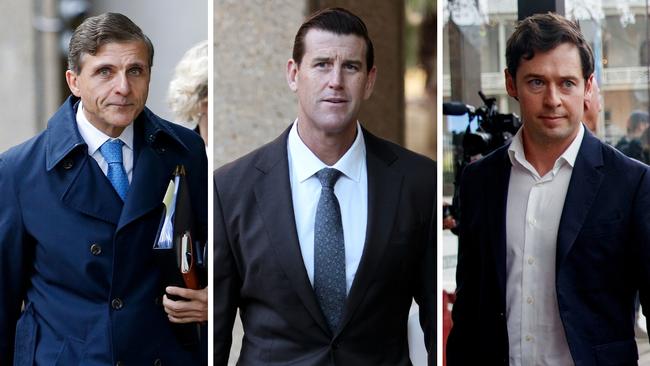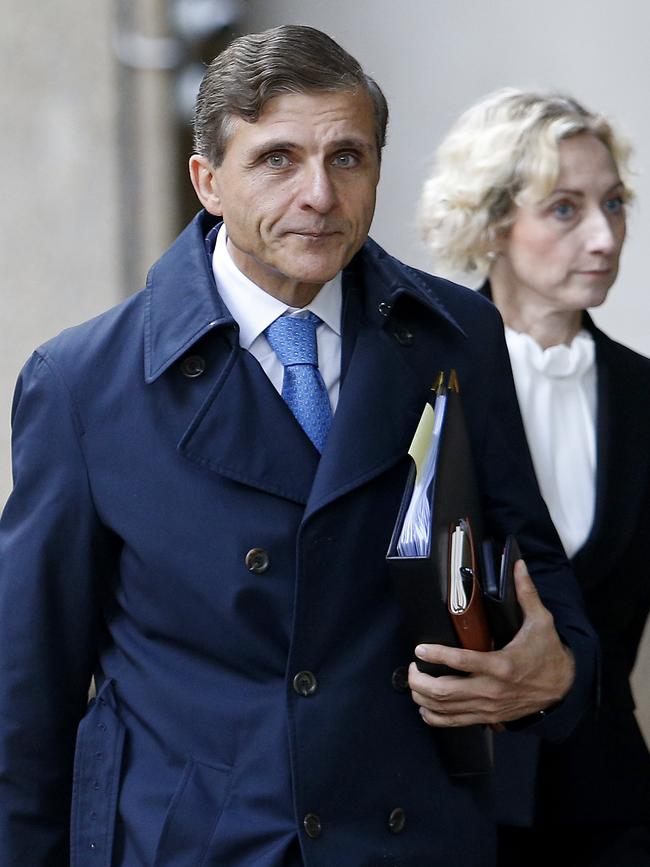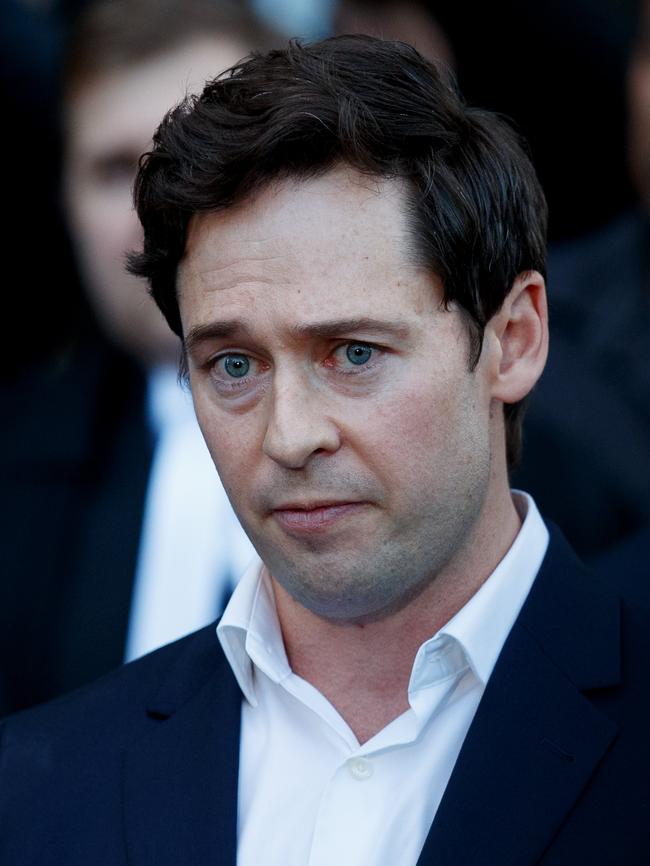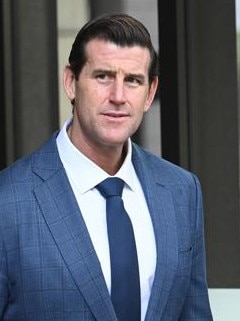Ben Roberts-Smith claims new evidence in appeal against war crimes ruling
Ben Roberts-Smith’s lawyers say new evidence shows that Nine reporter Nick McKenzie passed on to his lawyers a ‘blatant, privileged communication’ that had been sent to the former soldier by his legal team.

Ben Roberts-Smith’s lawyers say new evidence shows that Nine reporter Nick McKenzie passed on to his lawyers a “blatant, privileged communication” that had been sent to the former soldier by his legal team.
In the Federal Court on Tuesday, Arthur Moses pressed his case that Roberts-Smith was the victim of a miscarriage of justice in his failed defamation case against Nine newspapers, following release of a secretly taped conversation involving the journalist.
In the recording, McKenzie tells Roberts-Smith’s former mistress that the soldier’s former wife, Emma Roberts, and her friend Danielle Scott had been “actively briefing us on his legal strategy in respect to you”.
The Victoria Cross recipient claims Ms Roberts had access to his email account and that she and Ms Scott passed his privileged messages on to McKenzie.
Roberts-Smith is now seeking evidence from McKenzie and MinterEllison lawyers Peter Bartlett and Dean Levitan, who acted for Nine during the defamation trial.

Mr Moses told judge Nye Perram that new information, which had not been disclosed by McKenzie in his affidavit, was produced only late on Monday night after the judge had ordered production of the material.
Mr Moses said during the defamation trial, an issue had arisen on November 2, 2020, about a potential breach of the Family Law Act after a tweet by McKenzie
On the same day, Ms Scott had messaged McKenzie alerting him that Roberts-Smith’s lawyers were planning to notify the Commonwealth Director of Public Prosecutions and claiming the tweet was a breach of the act.
“Always better to be on the front foot, I say, and know what they are planning. I think you owe me two beers now,” Ms Scott allegedly told McKenzie in the message.
Mr Moses said that on the same day, an email was actually sent by Roberts-Smith’s lawyers to the CDPP notifying them of the alleged breach.
“We can’t shut our eyes to this, your Honour, and this is Mr McKenzie’s document, which we understand it will be said he gave to the lawyers,” Mr Moses said.


“We don’t like to hear it, Your Honour, but we have to know what’s going on here. We’re not being told the complete truth in respect of these matters because this wasn’t disclosed by Mr McKenzie in his affidavit, it only came back because Your Honour called for the production of material.”
Earlier in the hearing, counsel for Mr Bartlett and Mr Levitan had demanded a retraction and apology from Mr Moses over his claims last week that McKenzie had “thrown (the two lawyers) under the bus” by stating that he had given them all the information, and that neither had ever suggested it contained privileged material.
Tom Blackburn, counsel for Mr Bartlett, said: “That was, whichever way you cut it, a direct attack on my client, Mr Bartlett, for which there was absolutely no justification and no basis.” Nicholas Bender, acting for Mr Levitan, made similar submissions.
On Monday, Justice Perram also appeared to slap down Mr Moses’s suggestion, ruling the allegation of misconduct by the lawyers did not correspond with Roberts-Smith’s application to reopen the appeal, in which the only person alleged to have been involved in misconduct was McKenzie.
On Tuesday, Mr Moses did not apologise, arguing it was McKenzie who had brought his lawyers into the matter by the way he had put his evidence before the court.
“Their evidence will assist in establishing whether he was ever advised, cautioned or corrected about the privileged character of the information,” he said.
Mr Blackburn argued that the subpoenas were being used to gather evidence to attack his client and Mr Levitan, and should be set aside as an abuse of process.
Mr Moses was “fishing for evidence to support his case on appeal that isn’t even pleaded”, he said, and had failed to point to any actual material that had been referenced to support his claim of a miscarriage of justice.
A mere possibility that forensic decisions had been made in the case by reason of any material McKenzie had was not enough, he said. “They cannot hope to succeed unless they demonstrate that the material was used.”
McKenzie is due to give evidence in the case on Thursday.



